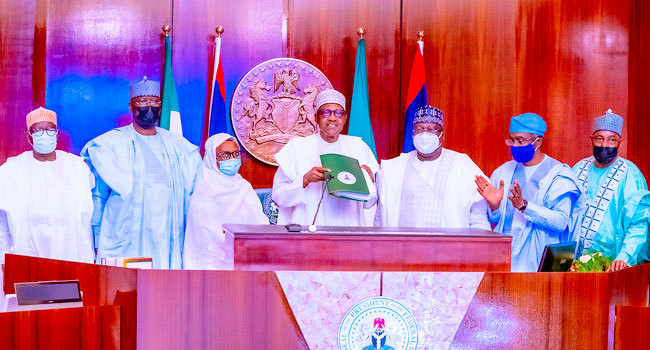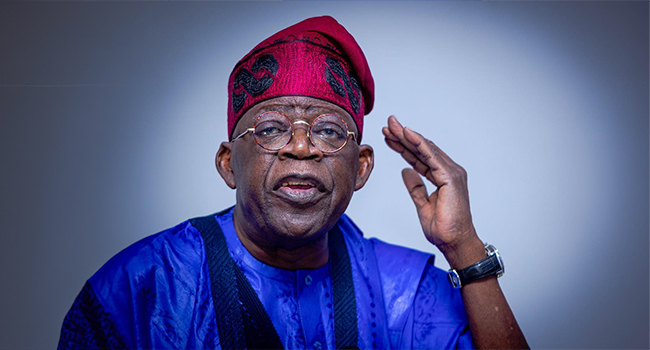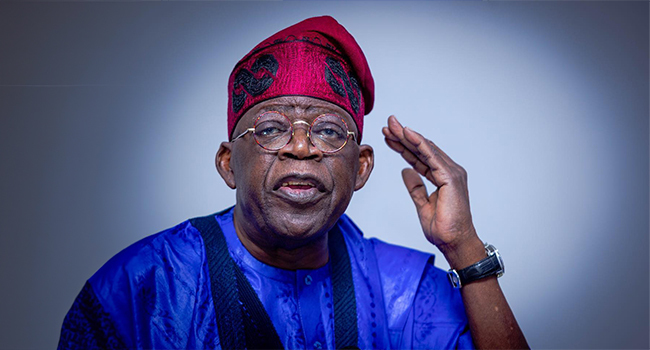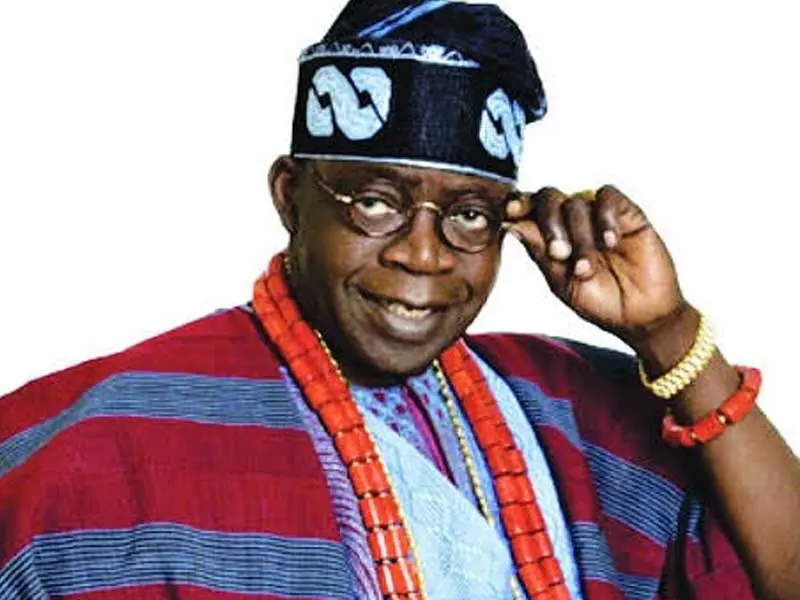Analysis
Electoral Act 2022: The Validity of Section 84 (12)

By Matthew Eloyi
It is no longer news that the Electoral Act Amendment Bill of 2022 was signed into law by President Muhammadu Buhari on Friday, February 25, 2022. It is sufficient to recall that the abovementioned Bill was signed into law after a long period of delay and setbacks from both the Presidency and the National Assembly, particularly on the Bill’s provision regarding mandatory direct primaries.
It’s worth recalling that at the occasion of the signing of the Bill, President Buhari expressed his reservations about the new Law’s Section 84 (12) clause. Mr. President, according to a statement attributed to him, stated that the section in question is in conflict with existing constitutional provisions.
He went on to say that Section 84 (12) effectively disenfranchises serving political office holders from voting or being voted for at political party conventions or congresses for the purpose of nominating candidates for any election held less than 30 days before the National Election.
Political analysts, commentators, and legal experts have all reacted to the President’s reservations by issuing rebukes and criticisms.
On the basis of the foregoing, it is necessary to evaluate the contents of Section 84 (12) of the new Electoral Act in light of relevant provisions of the Constitution in order to determine the constitutionality or otherwise of the Act’s provision.
Section 84 (12) provides that: “No political appointee at any level shall be voting delegates or be voted for at the Convention or Congress of any political party for the purpose of the nomination of candidates for any election.”
This implies that an appointee of the Executive should not, and must not, be a delegate in primary elections while still in office, just as an appointee of the Executive should not be contesting as a delegate at any political party’s Convention or Congress while still in office.
To begin, it is important to highlight that the legitimacy of Section 84 (12) of the Electoral Act is derived from the Constitution, and it does not contradict the Constitution. The National Assembly has the power to provide guidelines and rules to ensure internal democracy within political parties, including making laws for the conduct of party primaries, party congresses, and party conventions, under Section 228 of the Constitution of the Federal Republic of Nigeria, 1999 (as amended).
It is also worth noting that certain clauses of the Constitution prohibit people from running for the Senate or House of Representatives if they are engaged in the federal or state government and have not resigned, withdrawn, or retired from their position thirty days before the election. See Section 66(1)(f) of the 1999 Constitution (as amended). See also Section 107(1), (f) of the Constitution, which states that a public servant is ineligible to run for a post in the House of Assembly.
It’s also worth noting that a public servant is ineligible to run for President, Vice President, Governor, or Deputy Governor if he or she has not resigned from such job within 30 days of the election date. This is according to Sections 137(1)(g) and 182(1)(g) of the 1999 Constitution (as amended).
It can be argued that the need for a public servant to resign before election is to ensure that those in the Executive Administration of the Government at all levels are impartial and to prevent partisan politics in the civil service. A Civil Servant cannot be involved in party politics, according to the Public Service Rules. So you must resign if you want to be involved in partisan politics.
It is therefore, apt to commend the National Assembly for refusing to delete Section 84(12) of the new Electoral Act, making it mandatory for political appointees to resign their appointment before participating in primary elections as either delegates or candidates.
Analysis
Tinubu’s Democracy Day Honours: A Bold Nod to History, Justice, and Reconciliation

Tinubu’s Democracy Day Honours: A Bold Nod to History, Justice, and Reconciliation
By Matthew Eloyi
In a dramatic and symbolic move that blended history with political reckoning, President Bola Tinubu on Democracy Day conferred national honours on a diverse array of Nigerians—activists, journalists, politicians, and posthumous figures whose struggles, sacrifices, and stances helped shape Nigeria’s democratic trajectory.
Announcing the honours during his State of the Nation address at the National Assembly, Tinubu brought a rare moment of consensus to the political landscape by reaching across ideological, ethnic, and generational lines.
What makes this honours list particularly significant is its unmistakable tilt toward historically marginalized figures—those who were imprisoned, killed, or sidelined during Nigeria’s long and arduous march to civilian rule. Most strikingly, the late Kudirat Abiola, who was assassinated in 1996 while campaigning for the actualization of her husband’s June 12 mandate, was conferred the Commander of the Federal Republic (CFR), a poignant recognition that may resonate deeply with democracy advocates.
The symbolism was further amplified with the inclusion of Nobel laureate Professor Wole Soyinka, who received the Grand Commander of the Order of the Niger (GCON)—the second-highest national honour. Alongside him were fallen democracy icons like Shehu Musa Yar’Adua (GCFR), Ken Saro-Wiwa, and the other members of the Ogoni Nine, all of whom were posthumously honoured.
The awardees list reads like a roll call of defiance and courage, containing names such as Dr. Beko Ransome-Kuti, Chima Ubani, Pa Alfred Rewane, Balarabe Musa, Alao Aka-Bashorun, and Chief Bola Ige. Many of them were not just victims of military tyranny but architects of the democratic values Nigeria now upholds.
Equally significant is the inclusion of journalists and media advocates who fought for press freedom in dangerous times. The likes of Dapo Olorunyomi, Bayo Onanuga, Kunle Ajibade, Nosa Igiebor, Seye Kehinde, and Uncle Sam Amuka Pemu were celebrated with various honours ranging from Officer of the Order of the Niger (OON) to Commander of the Order of the Niger (CON). Their recognition underscores the role of the media as a bulwark against authoritarianism.
Human rights lawyers and civil society champions were not left out. Prominent among them were Femi Falana (SAN), Ayo Obe, Ledum Mitee, and Senator Shehu Sani—each conferred with the CON. Their work, often at great personal risk, contributed to Nigeria’s democratic development and legal reforms.
One of the most politically significant moments of Tinubu’s address came when he said:
“I shall also be exercising my powers under the prerogative of mercy to grant these national heroes a full pardon, together with others whose names shall be announced later in conjunction with the National Council of State.”
This sweeping pardon, alongside the national honours, signals not just recognition but institutional rehabilitation. It reflects an attempt to formally close some of the darkest chapters of Nigeria’s military era and reaffirm the state’s commitment to democratic ideals.
Yet, this moment is more than symbolic. It is a political statement—one that may reframe Tinubu’s legacy as not just a product of the June 12 struggle but also its custodian in office. By honouring voices of resistance across different eras and backgrounds, he positions himself as a bridge between history and the present, between unhealed wounds and national reconciliation.
Whether these gestures will translate into substantive policy changes—especially on issues of press freedom, civil liberties, and justice—remains to be seen. But for now, President Tinubu has done something few Nigerian leaders have dared to: publicly recognize and validate the sacrifices of those who stood up when it was dangerous to do so.
Analysis
Charting a Path for President Bola Ahmed Tinubu Amidst High Expectations

Charting a Path for President Bola Ahmed Tinubu Amidst High Expectations
By Zachariah Adigizi Hyellamada
Tinubu steps into a nation weighed down by simultaneous challenges in security and economy. The Nigerian populace anticipates his adeptness in harmonizing the nation and countering economic strains, partly stemming from the withdrawal of unsustainable subsidy systems that have previously shackled the government’s financial capabilities. Tinubu has already embarked on initial steps, such as the eradication of the petroleum subsidy, an action expected to save Nigeria a substantial $5.10 billion in the latter half of 2023. This fund injection could potentially foster growth and be allocated to developmental initiatives.
Furthermore, Tinubu’s ascendancy to the role of chairman for the Economic Community of West African States (ECOWAS) arrives at a pivotal moment for African leadership on the global stage. A noticeable need for strong leadership and improved coordination between African nations has surfaced, particularly evident in the discord among African countries concerning the future global financial architecture. Tinubu’s leadership acumen could be a catalyst for unification, compelling African nations to present a consolidated front that is not swayed by superficial agreements. This united front could advocate for more substantial measures, aligning with the strategic recommendations from the Africa High-Level Working Group on the Global Financial Architecture. The objective: pushing affluent nations to champion African debt relief and channel fresh financing towards climate action.
Navigating Complex Domestic Terrain
Tinubu’s administration is confronted with the arduous task of addressing a fractured social contract between the government and its citizens, exacerbated by economic inequalities that frequently manifest as instability and criminal activities.
Although these conditions were not forged by Tinubu’s administration, it is entrusted with the responsibility of remedying them through prudent economic and security strategies. The administration’s response has been characterized by resolute security measures and bold economic policies, which include the termination of fuel subsidies. A significant stride has been the enactment of the Student Loan Act, a pivotal mechanism to enhance higher education accessibility. Additionally, the suspension of the Central Bank of Nigeria’s (CBN) governor was enacted to depoliticize the position. Notably, the newly appointed Acting Governor of the CBN, Folashodun Shonubi, terminated the utilization of multiple exchange rates, introducing a more open exchange rate system. This change curbs the arbitrage between the black-market and official foreign-exchange rates that previously enabled rent-seeking practices.
Yet, the journey ahead for Tinubu is substantial. To maintain public confidence, the administration should effectively communicate that addressing Nigeria’s two primary economic challenges – high inflation and unemployment – necessitates striking a balance. Efforts to tackle one issue may temporarily exacerbate the other. However, the administration should strategically prioritize economic expansion and job creation. This emphasis is particularly crucial due to the concurrent pressures of endogenous and exogenous inflation. The removal of the petrol subsidy and the liberalization of the foreign exchange market have compounded these inflationary pressures.
Read Also: THE NIGERIAN ECONOMY: WHERE ARE WE NOW?
While external inflationary influences are fueled by global events such as rising food prices and currency fluctuations, domestic factors, including the removal of subsidies and currency devaluation, have accentuated Nigeria’s economic challenges. Tinubu’s economic reforms are pivotal in alleviating these concerns, particularly the urgent need to diminish Nigeria’s estimated debt service-to-revenue ratio of 73.5% in 2023, and its debt-to-GDP ratio projected to reach 37.1% this year.
The Tinubu administration’s approach strikes a balance between economic reforms and amplified social programs. The Nigerian Senate’s approval of an $800 million World Bank loan to counteract inflationary pressures post-subsidy removal exemplifies a comprehensive approach. The administration’s prioritization of affordable food and clean water as national-security imperatives underscores its commitment to citizens’ welfare. However, it is imperative to note that debt-financed strategies are short-term solutions. The administration’s focus must pivot towards augmenting internally generated revenue, refining infrastructure, and fostering a conducive environment for economic growth and job creation. Enhancing tax payment processes and harmonizing tax laws are critical steps in this direction, as they will augment the ease of doing business and subsequently expand the tax base, fostering economic growth and discouraging the exodus of talented young Nigerians.
The administration should also channel investments into infrastructure development, with a focus on implementing the 2023 Electricity Act. This act empowers states, corporations, and individuals to engage in electricity generation, transmission, and distribution, bolstering private-sector investments. Presently, Nigeria’s electricity generation of four thousand megawatts falls drastically short of the required 30,000 megawatts for its population of over 210 million. Stable electricity provision is pivotal for industrialization, productivity enhancement, and the overall improvement of living standards. By adopting a grassroots-driven regional industrialization framework, the administration can transition the 80% of workers employed in low-productivity sectors into the formal economy, thereby elevating economic prospects.
Broader Economic Integration and Reimagination of Federal Character
The administration’s agenda must extend towards fostering robust economic integration across Nigeria’s six geopolitical zones. The Nigerian National Economic Council (NEC), comprising vice presidents and state governors, is strategically poised to facilitate this integration. Nigeria’s constitution stipulates that principal political officeholders reflect the “federal character” – representing diverse tribal, religious, and regional backgrounds. However, this concept has, over time, morphed into a mechanism for resource distribution and patronage. Tinubu’s administration should redefine these six geopolitical zones as catalysts for regional economic development. By leveraging inherent comparative advantages, these zones can drive productive economic activities, diminishing the current focus on mere resource allocation.
Furthermore, the Tinubu administration should embark on revitalizing Nigeria’s chronically underfunded tertiary education system. The creation of centers for entrepreneurship and green-technology innovation, uniting universities and polytechnic colleges, could serve as engines for developing solutions to the nation’s pressing challenges. A prime example is Nigeria’s annual expenditure of $22 billion on private electricity generators, despite a mere 2% adoption of solar power. The recently introduced $550-million off-grid solar electrification program, coupled with collaborations with polytechnics, holds the potential to offer domestic energy solutions for homes and small businesses.
Global Frontiers and Shaping Nigeria’s Leadership
The Tinubu administration finds itself at the crossroads of shaping Nigeria’s global leadership narrative. This journey begins with a purposeful engagement with Nigeria’s highly educated diaspora. Many of these individuals hold positions or lead organizations that can serve as conduits for international markets, capital inflow, and foreign direct investment.
Nigeria, as one of Africa’s leading economies, stands poised to wield its substantial influence. With Tinubu’s chairmanship of ECOWAS, Nigeria is endowed with an opportunity to forge a unified African stance on diverse issues. Central among these is the defense of a rules-based international order that resonates with African equity and strategic interests. This collective voice is indispensable for effectively championing African interests within the G20, including the potential for African Union membership in the forum, as well as other international platforms like the International Monetary Fund, World Bank, and United Nations. Tinubu’s leadership will be instrumental in navigating regional challenges, including the recent coup in Niger, while responding judiciously as ECOWAS’ helmsman.
In the realm of international engagement, Tinubu’s administration needs to substantiate Nigeria’s capability to assume a leadership role. This endeavor starts with intentional engagement with the highly skilled Nigerian diaspora, who hold the potential to become bridges to international markets, financial resources, and foreign direct investment.
With Africa’s largest economy and population, coupled with Tinubu’s influential position, there is a surge in expectations for Nigeria to forge a consensus across various matters. This includes safeguarding a rules-based global order that accommodates African perspectives and strategic interests. Such strides are imperative for Nigeria to steer the advancement of African priorities within international platforms like the G20 and other pivotal forums. Amid regional challenges and critical developments such as the Niger coup, Tinubu’s leadership is undeniably at a crossroads. The world watches closely as he confronts these multifaceted challenges and endeavors to address them on the global stage.
In this intricate tapestry of challenges and opportunities, Tinubu’s administration must craft an inclusive domestic economic policy and a robust foreign policy agenda to enable Nigeria’s impactful international engagement. The global landscape teems with opportunities for the Nigerian government to deliver tangible outcomes for its citizens and the broader African continent. This moment calls for visionary leadership, and it’s up to Tinubu to seize this extraordinary opportunity.
Charting a Path for President Bola Ahmed Tinubu Amidst High Expectations
Analysis
Putting Competence Above Political Compensation: The Need for a Merit-Based Approach to Ministerial Appointments

By Matthew Eloyi
Expectations are high as Nigerians eagerly await the release of President Bola Tinubu’s ministerial list. In a country where political appointments often prioritize loyalty and favouritism over competence, it is imperative that we focus on the need to put competence above political compensation. At a critical juncture in our nation’s development, the selection of ministers based on merit becomes essential for achieving sustainable progress, sound governance, and socioeconomic growth.
The Impact of Political Compensation on Governance:
Historically, political compensation has plagued Nigeria’s governmental system, hindering progress, and stifling development. Appointment of ministers based solely on political allegiance rather than competency fosters a culture of mediocrity and undermines the delivery of effective public services. Consequently, Nigeria has suffered from inadequate governance, corruption, and a lack of progress in various sectors. It is high time the nation underwent a paradigm shift, placing competence at the heart of ministerial appointments.
The Importance of Merit and Competence:
When selecting ministers, it is vital to prioritize merit and competence over political considerations. A merit-based approach ensures that individuals with the right skills, knowledge, and experience occupy critical positions, leading to efficient policy formulation and effective service delivery. Meritorious appointments bring together a talented pool of individuals capable of driving positive change and innovation in various sectors, including healthcare, education, infrastructure, and economic development. By placing competency as the primary criterion, the government can tap into the country’s vast human potential, accelerating growth and development.
The Link Between Competent Ministers and Economic Growth:
Economic growth is contingent upon the implementation of sound policies driven by competent individuals who understand the intricacies of governance. Competent ministers possess the ability to translate policies into tangible actions, fostering an environment conducive to investment, job creation, and economic diversification. By appointing experts in specific fields, such as finance, industry, defence, and agriculture, Nigeria can harness its resources effectively, attract foreign investments, and foster sustainable economic growth. A merit-based approach to ministerial appointments is, therefore, crucial for achieving the nation’s socioeconomic objectives.
Capacity Building and Institutional Strengthening:
Aside from short-term gains, a merit-based approach promotes long-term benefits, including capacity building and institutional strengthening. Competent ministers have the ability to mentor and empower their respective ministries, fostering a culture of excellence, professionalism, and productivity. Through effective leadership, they can drive reforms, enhance institutional capacity, and create a conducive environment for innovations, research, and development. This approach ensures sustainable growth and ensures that the wheels of progress continue turning even after their tenure.
Public Confidence and Trust:
A merit-based approach to ministerial appointments plays a significant role in restoring public confidence and trust in the government. Often, the appointment of unqualified individuals breeds disillusionment among citizens and hampers their belief in the system. By focusing on competence, the government demonstrates its commitment to effective governance, enhancing accountability and transparency. This, in turn, leads to a more engaged and participatory citizenry, supporting the government’s initiatives and contributing to the nation’s development.
Conclusion:
As Nigeria looks forward to a brighter future, it must prioritize competence over political compensation in ministerial appointments. By adopting a merit-based approach, the nation can empower capable individuals to lead critical sectors with integrity, expertise, and proficiency. This shift will lead to effective policy formulation, improved service delivery, and sustainable socioeconomic progress. It is the responsibility of both the government and the citizens to demand and uphold a meritocratic system that will unlock Nigeria’s immense potential and secure a prosperous future for all.
-

 Headlines4 years ago
Headlines4 years agoFacebook, Instagram Temporarily Allow Posts on Ukraine War Calling for Violence Against Invading Russians or Putin’s Death
-

 Headlines4 years ago
Headlines4 years agoNigeria, Other West African Countries Facing Worst Food Crisis in 10 Years, Aid Groups Say
-

 Foreign4 years ago
Foreign4 years agoNew York Consulate installs machines for 10-year passport
-

 News1 year ago
News1 year agoZero Trust Architecture in a Remote World: Securing the New Normal
-

 Entertainment3 years ago
Entertainment3 years agoPhyna emerges winner of Big Brother Naija Season 7
-

 Headlines2 years ago
Headlines2 years agoNigeria Customs modernisation project to check extortion of traders
-

 Entertainment2 years ago
Entertainment2 years agoMovie download platform, Netnaija, announces closure
-

 Economy2 years ago
Economy2 years agoWe generated N30.2 bn revenue in three months – Kano NCS Comptroller













